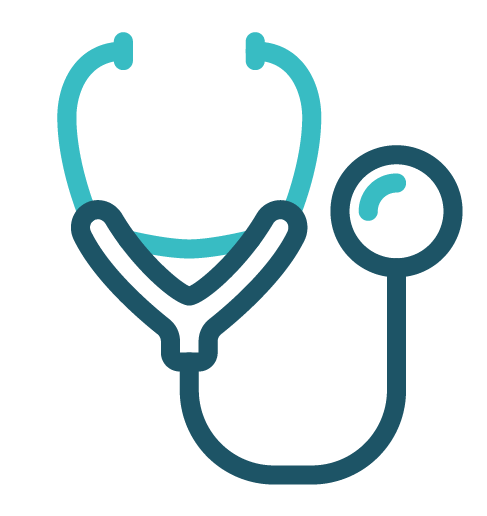When focusing on patient health outcomes, it's important to utilize all the tools at your disposal. That's where technology can come in handy and provide streamlined ways to improve patient satisfaction and offer value-based care. Care coordination software is a type of technology that is used to help healthcare providers and patients manage the care process more effectively. This software can come in many different forms, including web-based platforms, mobile apps, and specialized systems for specific types of care. Let's learn more about the different kinds and how they can help care team members.
Electronic Health Record Systems for
Accessible Data
One popular type of software for coordinated care is electronic health record (EHR) systems. These systems store patient health data and make it easily accessible to healthcare providers so they can better understand each patient's needs and provide the appropriate care. By being able to share data across providers, EHRs have allowed doctors to access up-to-date information on a patient's medical history and keep track of the different treatments they are receiving. This information is then used to improve the continuity of care and the individual level of attention each patient receives. With real-time communication between sites, providers can collaborate more effectively and ensure that patients are getting the highest quality of care possible. EHRs are revolutionizing healthcare coordination by improving efficiency, accuracy, and safety for all involved.
Patient Portals for Communication and Care Team Collaboration
Other types of software include patient portals, which allow patients to access and manage their information online, and population health management tools, which help providers analyze clinical data to identify areas for improvement. Not only do they allow patients to more easily access and manage all elements of their wellness, but they also create a centralized hub for real-time communication and collaboration between providers and other members of their care teams. By simplifying online self-management tools, patient portals reduce paperwork for every party involved, allowing faster synchronization of data that can improve clinical outcomes. This increased efficiency improves response times to prescribe medication or create care plans, reducing hospital readmission rates or instances of drug overuse while ensuring each patient receives quality care without hassles. With technology increasingly becoming critical in healthcare, this type of software is certainly leading the charge in improving care plans and their effectiveness.
Specialized Care Coordination Software
There are also specialized care coordination software systems for specific types of care, such as mental health or home health. These systems typically include features like scheduling tools, patient education resources, and management dashboards that can help providers better manage the care process and ensure patients get the right support at the right time. With an aging population and an increase in chronic healthcare concerns and chronic care management, the need for better care coordination continues to grow. Home health software and mental health software are specifically designed to facilitate better communication between patients, their families, and physicians. Such programs allow remote monitoring, appointment reminders, and access to treatment plans all from one centralized hub.
Mental Health and Home Health Software
As care coordination technology only continues to improve and evolve, we may soon be able to bridge that gap between healthcare customers with unprecedented efficiency. Mental health software is playing an increasingly important role in care coordination by allowing primary care providers to digitize administrative and patient information, enabling streamlined communication between organizations and individuals. This technology supports better collaboration within a team and ensures that everyone has access to the most up-to-date information about a patient. This improves continuity of care as providers can easily share data between organizations working with a patient. By cutting down on tedious manual tasks for providers, mental health software also allows them to focus on what truly matters: providing the patient with individualized, skilled care that meets their specific needs.
Cloud-Based Platforms in Care Coordination
Cloud-based platforms are another popular option that allows real-time communication between different members of the care team. This can include things like secure messaging, video chat, or online collaboration spaces. The use of these patient care platforms has become a preferred way to foster collaboration between teams, share clinical data, and ensure people receive a seamless level of the journey. Not only do cloud-based platforms help streamline businesses and operations but by giving healthcare professionals access to vital data as well as any updates or changes that are made - it can greatly improve patient outcomes, reduce operational costs, and boost overall patient satisfaction. The use of cloud-based platforms has revolutionized how care coordination is managed, allowing healthcare providers to take an innovative approach by building specially designed software tailored to the needs of their workforce.
Forcura is Your Cloud-based, Workflow Management Solution for Care Coordination
At Forcura, we partner with more than 850 home-based care organizations to provide workflow management solutions that help them improve outcomes and operate more efficiently both from the office and the field. Forcura’s technology platform facilitates value based care and care team collaboration and contributes to more than half a million patients each month experiencing less friction and more positive results in their care. Like the home health, hospice, personal care, and other clients we serve, we believe the role of patients in coordinating care should be easy so that the only thing they need to focus on is their health. For more information, check out Forcura today!







